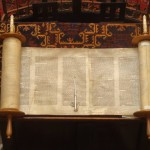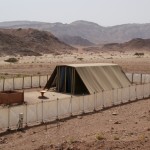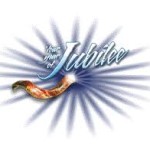Congregation Beth Mordecai
Congregation Beth Mordecai
An inclusive congregation affiliated with the Conservative Movement.
Your Jewish Home for the Soul!
An inclusive congregation affiliated with the Conservative Movement.
Your Jewish Home for the Soul!
February 27, 2015 By bethmordecai no comments.
 Parashat T'rumah 2015/5775 (Triennial II) -- The Gendered Language of Torah
In the second third of this week's Torah portion (Exodus 26:1-30), the term "sister" (achot) is to refer to cloths of Tabernacle's coverings (Exodus 26:3). Interestingly, this same term is used in Ezekiel's vision of the cherubim to refer to their wings (Ezekiel 1:9) which brings to mind a passage in Exodus 25:20 (back in our Torah portion) which uses the term "brother" to refer to the faces of Cherubim.
What can we learn from this gendered language? Is it nothing more than an idiosyncrasy of the Hebrew language? Or does it teach us something deeper about the Torah's (and rabbis') view of[...]
Parashat T'rumah 2015/5775 (Triennial II) -- The Gendered Language of Torah
In the second third of this week's Torah portion (Exodus 26:1-30), the term "sister" (achot) is to refer to cloths of Tabernacle's coverings (Exodus 26:3). Interestingly, this same term is used in Ezekiel's vision of the cherubim to refer to their wings (Ezekiel 1:9) which brings to mind a passage in Exodus 25:20 (back in our Torah portion) which uses the term "brother" to refer to the faces of Cherubim.
What can we learn from this gendered language? Is it nothing more than an idiosyncrasy of the Hebrew language? Or does it teach us something deeper about the Torah's (and rabbis') view of[...]
Category : Online Learning Online Parashah Class Tag : angels cherubim coverings Exodus 26 Exodus 26:3 gender language online learning online parashah class parsha t'rumah tabernacle terumah weekly torah portion תרומה
January 31, 2015 By bethmordecai no comments.
 Parashat B'shalah 2014/5774 (Triennial II): Why Am I in the Middle?
At the end and the beginning of the triennial section of this week's Torah portion (Exodus 14:15 and Exodus 16:8), Moses finds himself standing between a complaining people and an impatient God. At first, Moses tries to intercede but later on he tries to get out of the way. Why the shift? What is different now about the relationships among God, Moses, and the Israelites that leads Moses to no longer want to be the middle man? And perhaps investigating this question will help us understand what to do when we are caught in the middle.
Join us for this interesting conversation on being caught in the middle.
Parashat B'shalah 2014/5774 (Triennial II): Why Am I in the Middle?
At the end and the beginning of the triennial section of this week's Torah portion (Exodus 14:15 and Exodus 16:8), Moses finds himself standing between a complaining people and an impatient God. At first, Moses tries to intercede but later on he tries to get out of the way. Why the shift? What is different now about the relationships among God, Moses, and the Israelites that leads Moses to no longer want to be the middle man? And perhaps investigating this question will help us understand what to do when we are caught in the middle.
Join us for this interesting conversation on being caught in the middle.
Category : Online Learning Online Parashah Class Tag : b'shalah beshallach caught God intermediary Israelite people middle moses online parsha class online parshah class parsha parshat relationship torah weekly torah portion בשלח
January 23, 2015 By bethmordecai no comments.
 Parashat Bo 2015/5775 (Triennial II) -- The Jewish Origin for Counting Time (or JST, Jewish Standard Time)
This week we celebrated the new Jewish month (hodesh) of Sh'vat in which we will celebrate the "New Year of the trees" (to take place in the middle of the month). While counting months of a year seems natural, it was in many ways an innovation at a time when the year was organized strictly by the sun. In this week's Torah portion, we read this moment of innovation in which God commands Moses and Aaron to appoint "this month as the head of all months" (Exodus 12:1-2). What does this innovation teach us about the unique way in which God wanted the Israelites[...]
Parashat Bo 2015/5775 (Triennial II) -- The Jewish Origin for Counting Time (or JST, Jewish Standard Time)
This week we celebrated the new Jewish month (hodesh) of Sh'vat in which we will celebrate the "New Year of the trees" (to take place in the middle of the month). While counting months of a year seems natural, it was in many ways an innovation at a time when the year was organized strictly by the sun. In this week's Torah portion, we read this moment of innovation in which God commands Moses and Aaron to appoint "this month as the head of all months" (Exodus 12:1-2). What does this innovation teach us about the unique way in which God wanted the Israelites[...]
Category : Online Learning Online Parashah Class Tag : bad bo change good months online learning online parashah class parsha parshah time weekly torah portion בא
December 19, 2014 By bethmordecai no comments.
Parashat Mikeitz 2014/5775 (Triennial II) -- Hope Amidst Destruction In this week's Torah portion we learn about the stories related to the rationing ("shever") of grain in Egypt by our forefather Joseph. The Hebrew word "shever" is used often in this context, principally to refer to the dividing of grains into rations. Yet in other contexts the same root (sh-v-r) means "to destroy" and an analogous root (s-v-r) means "to hope." What can we learn by the different meanings of the same root? Given the dire circumstances caused by the famine in Egypt, is it possible that the act of "rationing" is a reflection of hope amidst destruction? And if so, what role can God play in helping us have hope through the tribulations[...]
Category : Online Learning Online Parashah Class Tag : brothers destruction hope joseph mikeitz miketz online learning online parashah class parsha parshah weekly torah portion מקץ
August 22, 2014 By bethmordecai no comments.
 Parashat R'eih 2014/5774 (Triennial I): Is The Harder Path Worth It?
In this week's Torah portion, we read that God will bless the Israelites if they follow God's commandments, and will curse them if they do not. Yet, as one rabbinic commentator teaches in a parable, the way of doing God's commandments is a difficult one. So is this harder path really worth it? In our day and age, what kind of blessing can be gained through the hard path of Jewish observance? And what, if any, curse will occur if we do not go down this path?
Parashat R'eih 2014/5774 (Triennial I): Is The Harder Path Worth It?
In this week's Torah portion, we read that God will bless the Israelites if they follow God's commandments, and will curse them if they do not. Yet, as one rabbinic commentator teaches in a parable, the way of doing God's commandments is a difficult one. So is this harder path really worth it? In our day and age, what kind of blessing can be gained through the hard path of Jewish observance? And what, if any, curse will occur if we do not go down this path?
Join us for this interesting discussion on the[...]
Category : Online Learning Online Parashah Class Tag : da'at z'kanim discipline Jewish mitzvot next world olam haba olam hazeh parsha path r'eih rashi re'eh עולם הבא עולם הזה
June 6, 2014 By bethmordecai no comments.
 Parashat B'ha-alot'khah 2014/5774 (Triennial I) -- Does God Need Light?
At the beginning of this week's Torah portion, we learn how the Israelites (and particularly the Levites) are instructed to light the m'norah in the Temple. But why is that light there? Do the people need the light to see in the Temple? Or does God need the light of the people? Or is there another purpose to this light altogether! Come join us for this fascinating conversation about the usage of light in our sacred spaces.
Parashat B'ha-alot'khah 2014/5774 (Triennial I) -- Does God Need Light?
At the beginning of this week's Torah portion, we learn how the Israelites (and particularly the Levites) are instructed to light the m'norah in the Temple. But why is that light there? Do the people need the light to see in the Temple? Or does God need the light of the people? Or is there another purpose to this light altogether! Come join us for this fascinating conversation about the usage of light in our sacred spaces.
Category : Online Learning Online Parashah Class Tag : b'ha-alot'khah behaalotecha candles God light m'norah menorah online learning online parashah class parasha parsha rabeinu bachya rashi weekly torah portion בהעלותך
May 23, 2014 By bethmordecai no comments.
 Parashat B'midbar 2014/5774 (Triennial I) -- Size Doesn't Matter
In this week's Torah portion we read how the Tent of the Meeting is the place for Israel to gather and the place to house God's Presence in their journey through the desert. But how can one small place contain so many people and so much glory? It seems too small! Yet, there are other places in the Bible where "what is less is able to contain what is more." Can this teach us about the importance of "size" in the Bible, especially given the small size and great impact of the Jewish people? Is it possible that when it comes to things that[...]
Parashat B'midbar 2014/5774 (Triennial I) -- Size Doesn't Matter
In this week's Torah portion we read how the Tent of the Meeting is the place for Israel to gather and the place to house God's Presence in their journey through the desert. But how can one small place contain so many people and so much glory? It seems too small! Yet, there are other places in the Bible where "what is less is able to contain what is more." Can this teach us about the importance of "size" in the Bible, especially given the small size and great impact of the Jewish people? Is it possible that when it comes to things that[...]
Category : Online Learning Online Parashah Class Tag : b'midbar bamidbar chosen people numbers online learning online parashah class parashah parsha parshah size tent of meeting weekly torah portion במדבר
May 16, 2014 By bethmordecai no comments.
 Parashat B'hukkotai 2014/5774 (Triennial I) -- Is The Earth At Fault
We normally think of the earth and all it contains as being some of the most beautiful creations of God. Throughout the Torah, the earth is laid to waste when humans commit sins, a trope that has become very popular today in environmentalist circles. But is it possible that according to our Torah portion today, Parashat B'hukkotai, the blame for human transgression should not be laid solely at the feet of humanity? Should the earth bear some responsibility for the transgressions that lay it bare? Check out today's class for this fascinating conversation!
Parashat B'hukkotai 2014/5774 (Triennial I) -- Is The Earth At Fault
We normally think of the earth and all it contains as being some of the most beautiful creations of God. Throughout the Torah, the earth is laid to waste when humans commit sins, a trope that has become very popular today in environmentalist circles. But is it possible that according to our Torah portion today, Parashat B'hukkotai, the blame for human transgression should not be laid solely at the feet of humanity? Should the earth bear some responsibility for the transgressions that lay it bare? Check out today's class for this fascinating conversation!
Category : Online Learning Online Parashah Class Tag : abundance earth environmentalism human impact human nature k'li yakar keli yakar keli yaqar online learning online parashah class parasha parsha parshah torah weekly torah portion בחוקותי
May 9, 2014 By bethmordecai no comments.
 Parashat B'har 2014/5774 (Triennial I) -- What's a Jubilee?
In this week's Torah portion we read about the "yoveil," the commemoration of the Jubilee every 50 years. But what is a Jubilee? Where does the term come from and what is it all about? Join us as we discuss the physical and spiritual qualities of the Jubilee and its message for our day.
Parashat B'har 2014/5774 (Triennial I) -- What's a Jubilee?
In this week's Torah portion we read about the "yoveil," the commemoration of the Jubilee every 50 years. But what is a Jubilee? Where does the term come from and what is it all about? Join us as we discuss the physical and spiritual qualities of the Jubilee and its message for our day.
Category : Online Learning Online Parashah Class Tag : b'har behar blasts d'ror jubilee liberty online learning online parashah class parsha parshat Rosh Hashanah shofar yoveil בהר דרור יובל שופר תרועה
May 2, 2014 By bethmordecai no comments.
 Parashat Emor Triennial I (2014/5774) -- A Disabled Priest?
This week's Torah portion, Parashat Emor, we learn that any priest who has a "defect" is not allowed to participate in the sacrificial offerings (Lev 21:17). Can we learn anything from this verse on the Torah's treatment of people with disabilities, including how they can participate in our communities? Join us for this important conversation!
Parashat Emor Triennial I (2014/5774) -- A Disabled Priest?
This week's Torah portion, Parashat Emor, we learn that any priest who has a "defect" is not allowed to participate in the sacrificial offerings (Lev 21:17). Can we learn anything from this verse on the Torah's treatment of people with disabilities, including how they can participate in our communities? Join us for this important conversation!
Category : Online Learning Online Parashah Class Tag : emor online learning online parashah class parashah parsha parshat אמור